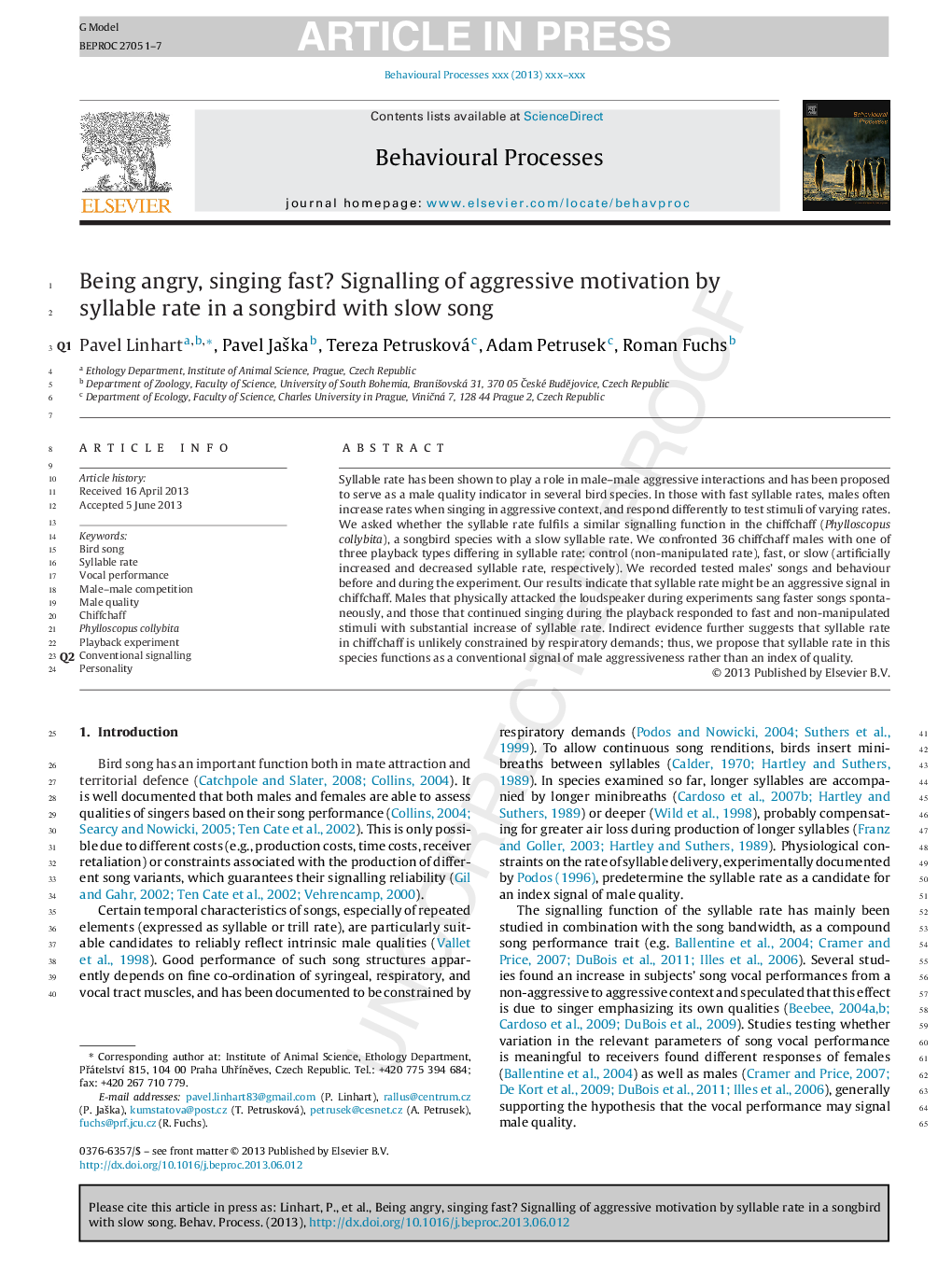| Article ID | Journal | Published Year | Pages | File Type |
|---|---|---|---|---|
| 8497428 | Behavioural Processes | 2013 | 7 Pages |
Abstract
Syllable rate has been shown to play a role in male-male aggressive interactions and has been proposed to serve as a male quality indicator in several bird species. In those with fast syllable rates, males often increase rates when singing in aggressive context, and respond differently to test stimuli of varying rates. We asked whether the syllable rate fulfils a similar signalling function in the chiffchaff (Phylloscopus collybita), a songbird species with a slow syllable rate. We confronted 36 chiffchaff males with one of three playback types differing in syllable rate: control (non-manipulated rate), fast, or slow (artificially increased and decreased syllable rate, respectively). We recorded tested males' songs and behaviour before and during the experiment. Our results indicate that syllable rate might be an aggressive signal in chiffchaff. Males that physically attacked the loudspeaker during experiments sang faster songs spontaneously, and those that continued singing during the playback responded to fast and non-manipulated stimuli with substantial increase of syllable rate. Indirect evidence further suggests that syllable rate in chiffchaff is unlikely constrained by respiratory demands; thus, we propose that syllable rate in this species functions as a conventional signal of male aggressiveness rather than an index of quality.
Related Topics
Life Sciences
Agricultural and Biological Sciences
Animal Science and Zoology
Authors
Pavel Linhart, Pavel JaÅ¡ka, Tereza Petrusková, Adam Petrusek, Roman Fuchs,
